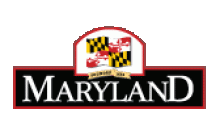One Maryland Fiber-Optic Broadband Project
Craig Settles sits down, across the country, to interview Maryland's Lori Sherwood, the Program Director for One Maryland. One Maryland is a stimulus-funded project bringing fiber-optic broadband to every county in the state. We have written about several counties using these connections to start building muni fiber networks (see our stories tagged with Maryland). One of the partners is the Maryland Broadband Cooperative, which focuses on middle mile connections also.
Listen to the interview:
Listen to internet radio with cjspeaks on Blog Talk Radio
This project is expected to start saving the state some $30 million a year while greeting increasing the capacity to essential community institutions. Many of these institutions will undoubtedly be moving away from incumbent T1 and similar connections that have been gouging the taxpayers for years by grossly overcharging for what they provide.


